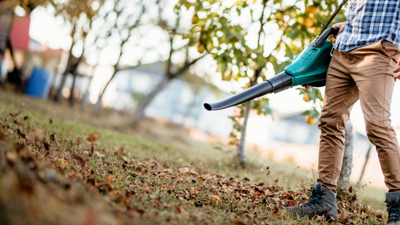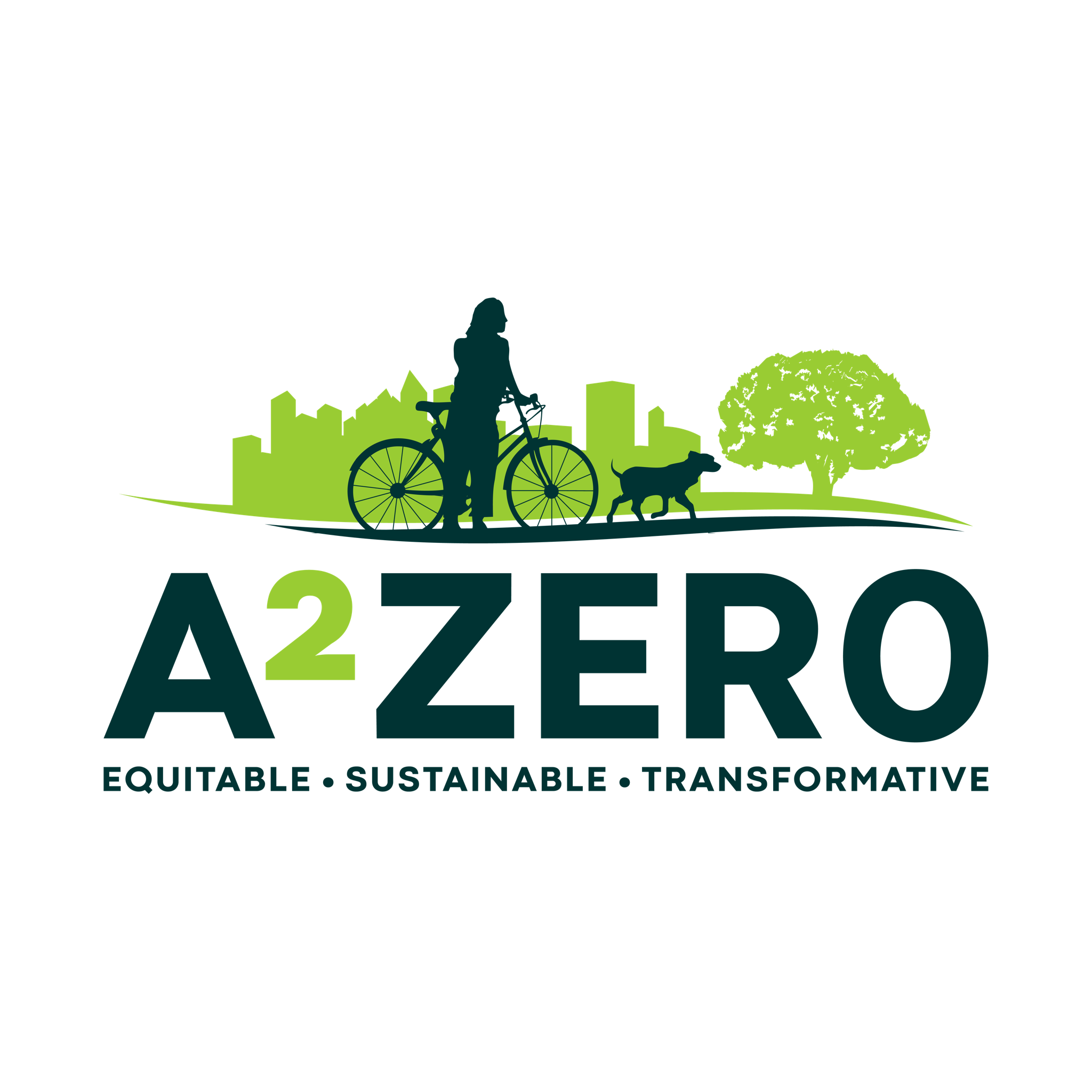In December 2023, Ann Arbor City Council enacted a new citywide requirement to phase out the use of gas-powered leaf blowers.
Phasing out gas-powered leaf blowers will lead to improved community health, less noise pollution, and fewer greenhouse gas emissions.
What are the new restrictions?
Summer ban: Beginning in 2024, the use of gas-powered leaf blowers will be prohibited in Ann Arbor from Jun. 1 to Sept. 30.
Seasonal use and phase-out: The use of gas-powered leaf blowers will be permitted from Oct. 1 to May 30 through 2027. Beginning Jan. 1, 2028, the use of gas-powered leaf blowers will be prohibited at all times in Ann Arbor.
General Restrictions: It is prohibited to blow or sweep debris, trash, leaves, plant clippings, or yard waste into a neighboring property, street, sidewalk, drain, or public right-of-way.
- Any leaf blower may be used at any time:
- In an emergency to protect health, safety, or property; or
- To restore property immediately after an emergency, such as to clear a walkway, driveway, or street from debris following a storm or other natural disaster.
- Any leaf blower may be used in street, sidewalk, or other paving construction or repair at any time when such work is otherwise permitted.
- Turbine blowers may be used at any time of year.
How to report a violation
If you see someone in violation of the leaf blower ordinance, you can report it to the Ann Arbor Police Department Community Standards at 734.794.6942.
Why phase-out gas-powered leaf blowers?
Health: Gas-burning leaf blowers release harmful pollutants such as carbon monoxide, nitrogen oxide, volatile organic compounds (VOCs) like formaldehyde, and fine particulate pollution. Exposure to these pollutants can increase the risk of cardiovascular disease, cognitive impairment, and respiratory disease.
Emissions: Using a gas-powered leaf blower for one hour can emit the same amount of greenhouse gases as driving a gas-powered car over 1000 miles.
Noise: Gas-powered leaf blowers can operate as loud as 100 decibels, which is almost as loud as a jet flyover at a sporting event. This high volume can cause hearing damage and stress from noise pollution.
Environmental contamination: Spills are common when refueling gas-powered leaf blowers. Fuel spills seep into soil and can enter groundwater and waterways.
Alternatives to gas-powered leaf blowers
Skip the leaf blower: A great alternative to using a gas leaf blower is to skip the leaf blower all together. Leaving whole or mulched leaves on a lawn provides a much-needed habitat for pollinator species, and a broom or rake can be used to remove leaves from sidewalks or driveways. Mulching can be done using a lawn mower. If a leaf blower is being used to remove mowed grass from a sidewalk or driveway, the area of mowed turfgrass can be reduced by planting native groundcover in place of turfgrass, or by extending the area of garden beds. To learn more about pollinator aware yard care, visit our pollinator aware yard care webpage, or take a look at the CTN episode linked below. Adapt, a nonprofit focused on creating native landscapes, also has information on their website about Ann Arbor contractors who specialize in pollinator friendly landscape services as well as additional resources. Scroll to the bottom of Adapt’s Ann Arbor/Ypsilanti webpage for their list of contractors.
Go electric: Electric leaf blowers are healthier alternatives to their gas-burning counterparts and are widely available. They produce no harmful air pollutants or environmental contamination, create significantly less noise and greenhouse gas emissions, have much lower operational costs, and are lighter, safer, easier to start, and require less maintenance. Lawn care companies and property owners are encouraged to view our case study guide and the CTN episode linked below to learn more about how to implement electric lawn care on a larger scale. The Office of Sustainability and Innovations will launch resources to help lower the cost of transitioning to electric leaf blowers by the end of 2024.
How to sustainably dispose of gas-powered leaf blowers
Resources
Electric Lawn Care Case Study Guide


